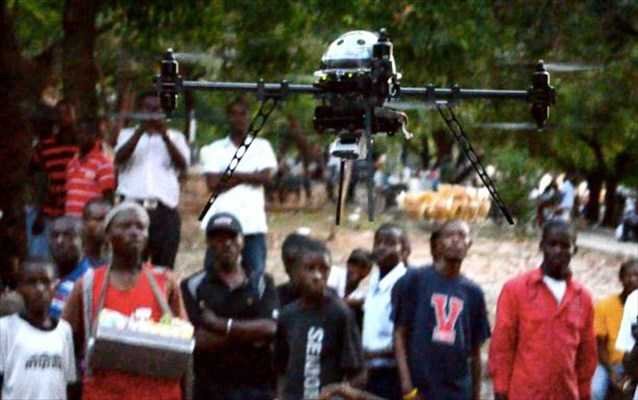Greek businessman Andreas Raptopoulos and his plans for drones which are "humanitarian" by transporting medical material to inaccessible areas, are at the center of its publication Guardian.
The idea of the possibilities arising from its drones in terms of one network παροχής ιατρικών προμηθειών προέκυψε πριν μια παρουσίαση στο Singularity University της Silicon Valley. Η ιδέα εξελίχθηκε σε μια startup ονόματι Matternet, που αποσκοπεί στην παροχή βοήθειας σε ανθρώπους οι οποίοι δεν έχουν πρόσβαση σε δρόμους καθ'όλη τη duration next year.
According to Mr. Raptopoulos, such a system could "overtake" it construction infrastructure, just as wireless networks "overtook" wired networks in developing countries. Small drones with eight engines will be used to transport small objects, weighing up to two kilograms, years before modern road networks are built to transportconnection areas.
The whole system will include the aircraft themselves, landing stations where the packets will be transferred and the software that will ensure their arrival at the destination. Due to the short life of the battery, the drones should work together: instead of a drone that will fly for 60 minutes, there will be six, each flying for 10 minutes.
Matternet has conducted trials in Haiti and the Dominican Republic.
According to the Guardian, Matternet has tested trials in Haiti and the Dominican Republic. Also, Lesotho, which is tested by an AIDS epidemic, has been identified as an area where the system could be used to transport samples to the countryside.
As Mr Raptopoulos notes, when one thinks of all the robotics companies in the world, he finds that there is not much that their first client would not come from the armed forces. "We will replace the military with the humanitarian," he stresses.
Most of Matternet's staff are in an office at Palo Alto, while others work from London. Four investors provided funding to the company, which plans to raise between three and five million dollars in the next round of funding.
As first-time users are "targeted" assistance services, as well as players in the field of pharmaceuticals and logistics. At the ideal level, bases and drones can be purchased from villages.
"Everyone can set up transport networks. They are decentralized. They do not need governments and big companies, "says the Greek businessman.
In terms of cost, it is estimated around 7.200 EUR per aircraft and 3.600 EUR per base. A network of five bases and 10 aircraft in one area, along with installation and education costs, would cost a humanitarian organization of approximately 108.000 euros, according to the report, citing Mr. Raptopoulos' estimates. Such a drone will be able to carry a load of two kilos at a distance of 10 kilometers, with good weather.






